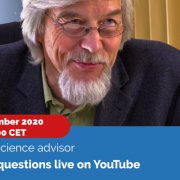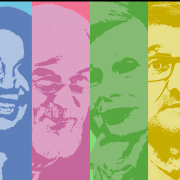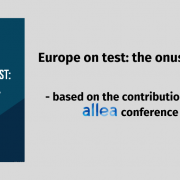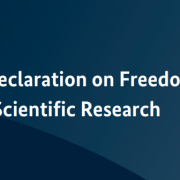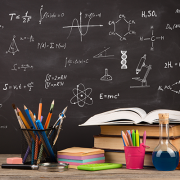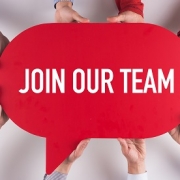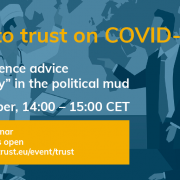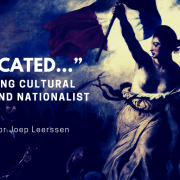ALLEA, the European Federation of Academies of Sciences and Humanities, is currently seeking a
Communications Officer
to join its team in Berlin as soon as possible for the duration of two years (target starting date: 1 December 2020). This is a part-time position at 50% FTE with possible increase of hours over the course of employment.
Role and responsibilities
Together with other members of the communications team
- Develop, implement and monitor ALLEA communications strategies and plans;
- Produce, manage and disseminate effective communications tools and activities (publications, websites, social media, newsletters, and other materials),
- Create and edit content for websites, brochures, news articles, press releases, opinion pieces and other publications, and prepare layout, format and graphic design of these products;
- Contribute to preparing and managing events, including conferences, stakeholder workshops, webinars and online meetings.
Skills and experience
- Academic degree to undergraduate level in a relevant subject (ideally in e.g. communications studies, journalism, graphic design, marketing) or at least 2-3 years equivalent professional experience;
- Fluency in English (ideally English native-speaker), with excellent writing skills; German or other foreign language skills are an asset;
- Experience in managing social media profiles;
- Good knowledge of Adobe Indesign, Photoshop and Illustrator;
- Knowledge and experience in using CMS and databases (especially WordPress);
- Experience in organising events (physical, hybrid, digital) is welcome;
- Experience in science publishing is an asset;
- Ability to work independently and in a team;
- A quick learner and team player with keen eye for detail and who appreciates working in an international team and environment;
- Interest in the areas of expertise of ALLEA (international relations, scientific collaboration, science communications, research policy, scientific advice to policymaking, etc.).
Why join us
ALLEA is the European Federation of Academies of Sciences and Humanities, representing more than 50 academies from over 40 EU and non-EU countries. ALLEA operates at the interface of science, policy and society and speaks out on behalf of its members to promote science as a global public good.
You will be part of a multi-cultural, young, and dynamic team working in the centre of Berlin and help ALLEA reach international stakeholders on societally relevant scientific topics. As a not-for-profit organisation, our working environment is informal and collegial, and our team shares a dedication to work for a common greater good.
This position offers the flexibility of combining working in the office and remotely. Remuneration will depend on the level of previous experience and qualifications and correspond to TV-L 10 or 11 of the German civil service pay scale.
ALLEA is an equal opportunity employer. For more information about us, please visit www.allea.org and/or follow us on Twitter @ALLEA_academies.
How to apply
If you are interested, please submit your digital application with a cover letter, CV, an example of a short written text (in English) and a sample of a graphic design work, relevant corresponding certificates as one single PDF document (3 MB max) to recruitment@allea.org by 8 November 2020.
Shortlisted candidates will be contacted for interviews in the following weeks.
Download the job post here.

